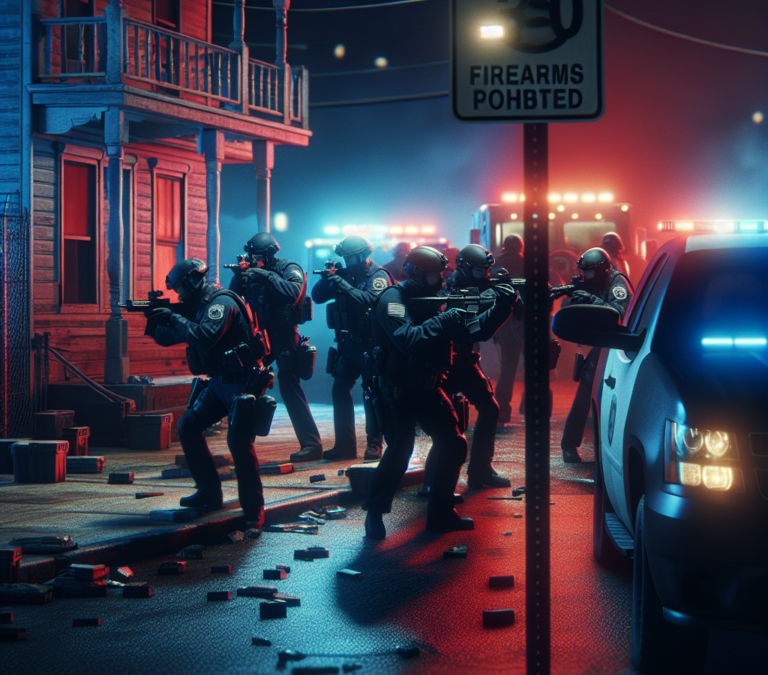BURNSVILLE, Minn. – A tragic incident unfolded in Burnsville, Minnesota, over the weekend that resulted in the fatal shootings of two police officers and a paramedic during a domestic violence standoff. The suspected gunman, 38-year-old Shannon Cortez Gooden, was prohibited from possessing firearms at the time of the deadly encounter, according to court documents.
Gooden, who had a lifetime ban from possessing firearms due to a 2008 conviction for second-degree assault with a deadly weapon, petitioned in 2020 to have his gun rights restored. However, his request was denied by a judge after prosecutors cited multiple encounters Gooden had with the police since his conviction, as well as two orders of protection filed against him alleging domestic assault and abuse.
The tragic incident occurred when Gooden barricaded himself inside a home with family members, including seven children, and opened fire on the officers who were responding to the domestic violence situation. The shootout resulted in the deaths of two Burnsville police officers, Paul Elmstrand and Matthew Ruge, and Burnsville firefighter and paramedic Adam Finseth.
Despite the rejection of his petition, the investigation revealed that Gooden was armed with multiple firearms during the standoff. The suspect is believed to have died from a self-inflicted gunshot wound to the head.
This tragic event has sparked discussions among state legislators about the effectiveness of current laws and measures in preventing such violent incidents. State Sen. Warren Limmer, a Republican, emphasized the need for better preparation within the criminal justice system to address such situations, while State Sen. Ron Latz, a Democrat, pointed out that while background checks and red flag laws are important, they may not prevent every situation.
In his denied petition, Gooden argued that he had rehabilitated himself since his 2007 arrest, claiming to have completed anger management and parenting courses, and had a steady job while caring for his family. However, the judge who denied his request cited other serious crimes and allegations against him, including the two orders of protection and more recent claims of domestic abuse.
The tragic outcome of the domestic violence standoff has raised questions about the effectiveness of existing laws and regulations, prompting a renewed discussion about how to address and prevent such incidents moving forward.









